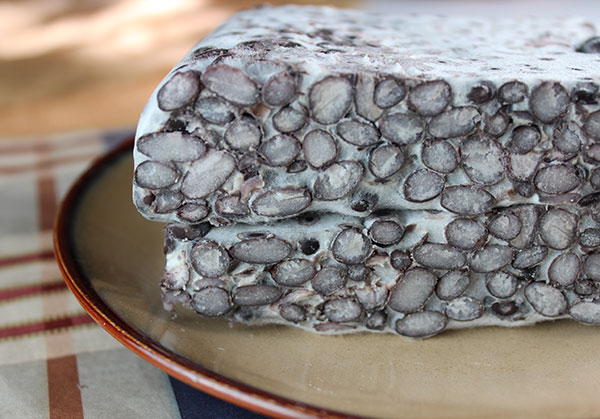Many nutritionists recommend not eating unfermented soy products, that is soy milk, tofu, and soy protein isolate. This is because these products contain phytic acid, phytoestrogens, added solvents to produce soy protein isolate, and other problems. But the same nutritionists that recommend against eating soy products recommend eating fermented soy products. These are tempeh, miso, soy sauce, and natto.
Tempeh and possibly natto are the only foods that are eaten in large quantities for nutritional purposes. I have been making my own soy tempeh for about 3 months now and have just very recently started making black bean tempeh. I've read many accounts of people preferring black bean tempeh over soy tempeh, so I thought I would give it a try.
Making soy tempeh is somewhat time-consuming, because you have to split the beans and remove the hulls manually. This is a lot of work. For one pound of beans about 45 minutes is required to remove the hulls or skins. Further time is required to dry the beans before they're inoculated with the starter culture. Black beans don't require removal of the hulls, and they don't require drying. So the process in making black bean tempeh is simple: soak the beans overnight, cook the beans, drain the beans, add vinegar and the starter culture, and incubate. And there is no worry about any deleterious effects from soy. Also, non GMO and organic soybeans are about twice as expensive as black beans. GMO soybeans contain Roundup which is a health concern.
Of course black beans aren't quite as nutritious as soy, that is they are more deficient in some of the amino acids. But that can be easily remedied by including some corn, whole wheat, or wheat germ with the meal.
